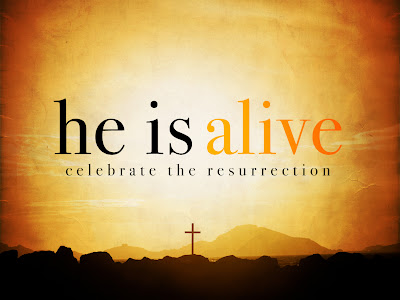 BACKGROUND:
BACKGROUND:Judas had told the crowd to arrest the man to whom he would give the kiss of greeting. This was not an arrest by Roman soldiers under Roman law, but an arrest by the religious leaders. Judas pointed Jesus out, not because Jesus was hard to recognize, but because Judas had agreed to be the formal accuser in case a trial was called. A kiss on the cheek or hand was a common form of greeting in the Middle East, so this was not unusual.
The religious leaders had not arrested Jesus in the Temple for fear of a riot. Instead, they had come secretly at night, under the influence of the prince of darkness, Satan himself. Jesus offered no resistance and was grabbed and arrested. Although it looked as if Satan were getting the upper hand, everything was proceeding according to God’s plan. It was time for Jesus to die.
Jesus protested, not his arrest, but the way he was arrested. They did not need to come against him with weapons, for he was voluntarily surrendering himself. Jesus was not a dangerous criminal leading a rebellion; he was a religious teacher who had been teaching in the Temple daily during the past week. Jesus also mocked their show of worldly power.
He who could summon angels was not afraid of swords. Did the guards imagine that swords would intimidate Jesus? They didn’t understand who he was. Jesus knew why the events were unfolding as they were—to fulfill what the Scriptures say. Judas’s treachery, the coming mockery of a trial against Jesus, and its ultimate outcome had all been prophesied.
Only Mark records the incident of this young man who also fled the scene. Tradition says that this young man may have been John Mark, the writer of this Gospel, in whose home the Last Supper may have taken place.
After a preliminary hearing, Jesus was taken to the high priest’s home. That all the religious leaders had been speedily assembled shows that this was a trial by the Jewish council of religious leaders consisting of seventy members plus the high priest. Because of their haste to complete the trial and see Jesus die before the Sabbath, less than twenty-four hours later, the religious leaders first met in Caiaphas’s home at night to accomplish the preliminaries before their more formal meeting in the Temple at daylight. They finally had Jesus where they wanted him, and they were determined to accomplish their plans as quickly as possible.
Upstairs in the high priest’s palace, the leading priests and the entire high council (meaning the group of seventy-one leaders of the Jews—priests and respected men) assembled in the middle of the night to get this trial under way, but they had a dilemma on their hands. They were trying to find witnesses who would testify against Jesus, so they could put him to death, but they couldn’t find any—only false witnesses who contradicted each other.
Caiaphas, the high priest, was getting frustrated. Now his only hope was to get Jesus to say something that would give them evidence to convict him. The religious leaders had tried and failed on prior occasions to trap Jesus with trick questions; Caiaphas tried to make up in intimidation what was lacking in evidence. He asked Jesus to answer his accusers and then to explain the accusations against him.
Jesus refused to say anything at first. He had nothing to say to the group of liars who had spoken against him, and he had no reason to explain a bunch of false accusations. So he made no reply. But then Jesus spoke some startling words: the Son of Man, sitting at God’s right hand, refers to Psalm 110:1, and coming back on the clouds of heaven recalls Daniel 7:13-14. The clouds represented the power and glory of God. Both verses were considered to be prophecies of the coming Messiah, and Jesus applied them to himself.
These religious leaders thought that Jesus was leading the people astray and bringing dishonor to God’s holy name. For any other human being, this claim would have been blasphemy; in this case, the claim was true. Blasphemy was punishable by death (Leviticus 24:15-16). “Why do we need other witnesses?” asked Caiaphas without expecting any answer. Jesus had incriminated himself. Caiaphas asked for their verdict. The Jewish leaders had the evidence they wanted, so they all condemned him to death.
Next some of the members of the council acted in a most brutish way. Jesus was blindfolded, and they took turns hitting him and then asking him to tell who it was that hit him. When they finished with Jesus, the guards came and also beat Jesus. Yet even this had been prophesied in Scripture. Jesus suffered great pain, humiliation, and brutality to take away our sin.
Few of us get repeated opportunities, as Peter did, to profess or reject our allegiance to Christ. More often, our first denial of Jesus would keep away any further inquiries. But it is not our identification with Peter’s weakness that helps us most. Rather, what happened later becomes our source of hope. Peter’s repentance and the Lord’s restoration of him give us confidence that God can handle our failures.
SO WHAT? (what will I do with what I have read today?)
The most important thing you believe in life is what you believe about God. It affects every other area of your life. It affects how you deal with your past. It affects how you face the future. It affects how you live today. What you believe about God affects every other area of your life.
Unfortunately there are a lot of things that can distort our view about God. We can get an inaccurate view about God. Our background can distort our view of God. Some people think God is like a impersonal force –“May the force be with you!” He’s some distant deity. Some people think God is a judgmental parent who’s always unpleasable. Some people think of God as some cruel tyrant. Some people just think He’s unrealistic. Some people think He’s a pushover.
The problem with this is: When you don't understand what God is really like, you fall into one of two mistakes. You deny Him and say, “I don’t believe in God.” And sometimes when we don't know what God is really like we just create our own little god. A lot of people have said to me, “I like to think of God as…” and then fill in the blank. They have their description.
But here is the truth about God. Two thousand years ago, God came to earth in human form so humans could understand Him. Luke 2:32 says, “Jesus is the light who revealed God to the nations.” God came to earth in human form named Jesus to reveal what God is really like. We look at Christ we can say, “That’s what God is really like!” “Christ is the visible image of the invisible God.” Jesus Christ came to earth to reveal what God is like.
The question is, “What do we know about God now because of Jesus Christ?” We know that God made you for a purpose. You’re not an accident. We know that God has a plan for your life. We know that God loves you deeply, that He’s seen every moment of your life, that He cares about you, that you’re deeply flawed, you’ve blown it but He still loves you. We know that He wants to forgive you, that He wants to have a relationship with you and He cares deeply about you.
Jesus often told stores to teach truths about God. One time He did something very unusual. He told three stories in a row with the exact same point. In rapid fire He told the same story in three different ways. It’s in Luke 15. Some of you are very familiar with these stories.
The first one is the story of the lost sheep. He says there was a shepherd who had 100 sheep. One day, one of them gets lost so the shepherd leaves 99 saved sheep in the fold and he goes out on this search and rescue mission for the one lost sheep. He leaves the 99 saved to go after just one. He doesn’t just forget him. He goes out and searches high and low and up and down and finally he finds the lost sheep and brings him back safely home and throws a party.
Then Jesus said there was a woman who had a lost coin. She had ten coins. It may have been her life savings. She loses one of the ten coins and so she searches high and low for this coin, turns her house upside down. She sweeps, she dusts, she looks into every room. Finally she finds the one lost coin. She’s so excited about it that she calls her neighbors, brings them all over and throws a party.
Then she said there’s a third story called the lost son or the prodigal son. He said a man had two sons and one of the sons comes to him one day and says “Dad, I want my share of the inheritance. I’m splitting! I’m leaving now.” The father gives him his half of the inheritance. The kid takes off for a foreign country and blows it. He squanders all of his inheritance on wine, women and song and not much song. He’s kind of messed up and he hits the bottom. And finally, in the low life that he’s living – he’s feeding pigs in a pigsty – he says, “What am I thinking!
Even the servants in my father’s home have it better than this!” So he comes to his senses, repents of his rebellion and goes back home to his father. As he’s coming home, his father sees him a far way off and runs out to meet him, hugs him with open arms, kisses him on the cheeks. He says, “Here. Take my best robe.” He puts a ring on his finger and says “We’re going to kill a fatted calf and we’re going to have a party.”
What was Jesus trying to teach in these three stories. Bam! Bam! Bam! Right in a row. What’s the common denominator? The common denominator is that in each story something valuable was lost. The sheep really mattered to the shepherd. And the coin really mattered to that woman. And obviously, the son really mattered to the father.
The Point? You matter to God. You really do. He cares far more about you than you will ever understand or realize. And in each of these three stories, in each case, there was no rest until that which was lost was rescued. That's why Jesus came. To rescue what was lost. Us. He did that by dying on the cross for our sins AND resurrecting from the dead. This is why we celebrate Easter.
Share these truths this week. I love you guys. Stay faithful. Stay the course.









